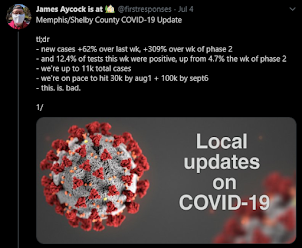Which Savior? Whose Salvation?
The First Day of Christmas
Friday, December 25, 2020
Luke 2.(1-7), 8-20
In their commentary on Luke, Amy-Jill Levine and Ben Witherington III explain how Luke challenges
Roman propaganda, “giv[ing] readers a choice: which savior do you follow, and whose salvation do
you want?”
We think of “gospel” (good news) as unique to Christianity. We associate “savior” and “son of God”
with Jesus. But anyone living in the Ancient Near East, circa 1st century, would have immediately
thought of the Emperor Augustus when they heard these terms.
By attributing these terms to Jesus, “Luke is thus challenging the claims of the emperor,” argue
Levine and Witherington.
To understand why this is such a challenge, just look back to the previous chapter, to Mary’s
Magnificat:
He has brought down the powerful from their thrones,
and lifted up the lowly;
he has filled the hungry with good things,
and sent the rich away empty.
This is a direct challenge to Augustus, the Emperor, who sits on the throne as Jesus is born.
Mary’s hymn says that he will be, actually that he already has been, brought down from his
throne and sent away empty.
And so, like it or not, Christmas is political.
You see, there is actually no such thing as “not political.” We live together, in community. And
figuring out how to do that is politics.
In our church this year, we have seen a glimpse of what politics can be.
As is often the case, our children led the way, collecting food for the Little Free Pantry at Caritas in
January, February, and again in March, as well as selling handmade Valentine’s cards to raise $365
for MIFA.
And by the time our annual missions offering was complete, we raised over $40,000 for ArkWings,
Bridges, Caritas, Church Health, Family Promise, Hospitality Hub, LifeLine to Success, MIFA, Peace
of Thread, Rachel’s Kids, Samaritan Counseling, our South Africa partners. (We’ve raised another
$23,000 so far this year.) We also supported the CBF response following the tornadoes that hit
middle Tennessee in early March.
All of this redistribution of wealth is political. And in a self-centered world, even small acts of service
to others is a form of resistance.
When COVID-19 hit, we found creative ways to continue the political work of the church. We’ve kept
in touch via phone calls, text messages, emails, and even good old-fashioned snail mail letters; and
we have gathered on/in Zoom calls, porches, patios, backyards, and parks.
In an isolated world, forming community is a political act of resistance.
We were there for one another during painful times as well, mourning the loss of 13 church members
in 2020. And in a culture that seeks to avoid any and all thought of death, it is a political act to
remember, as we do every year on All Saints Day. And so we remember their names - D, W, M, H,
A, B, L, A, I, P, D, B, V [note: abbreviated here for privacy] - and we keep alive the memories of how
they shaped our community. Despite what our culture would have us believe, we do not make
ourselves.
We also welcomed babies S, I, L, and J into our community this year, signs of hope in a world of
despair. It’s a political act to have children. It’s a political act for us to commit to helping raise other
people’s children. And it’s our political task to make the future better for them.
And so, on this Christmas Day, we have to ask ourselves, Which savior? Whose salvation?
Like it or not, Christmas is political.
The question is, what will our politics look like?
Last night, on Christmas Eve, the coldest night of the year, we gathered to light the Christ candle, to
spread the flame, to bring light and warmth into the world.
In a dark and cold world, there are those who would keep the light and warmth to themselves to build
up their power. And there are those who would use their wealth to buy up light and warmth for
themselves, keeping it from others. No wonder Mary sings of bringing them down from their thrones
and sending them away empty.
The lesson of Christmas is of the divine refusing to keep the light and warmth in heaven, but to bring it
to earth to share with all. And so the politics of the church is likewise to refuse to keep the light and
warmth to ourselves, but to freely share it with all as we did symbolically last night.
On earth as it is in heaven.































